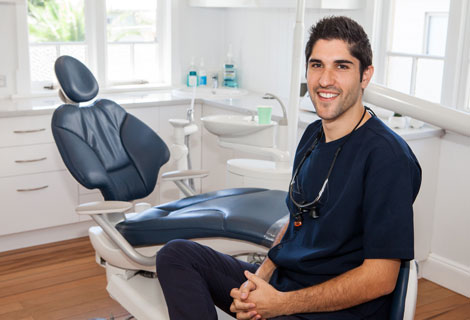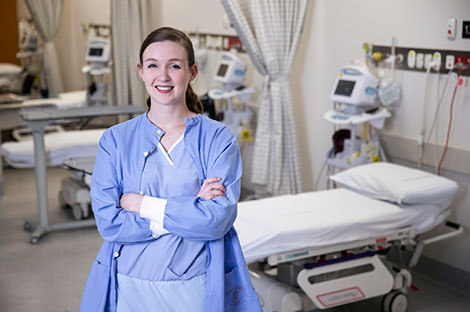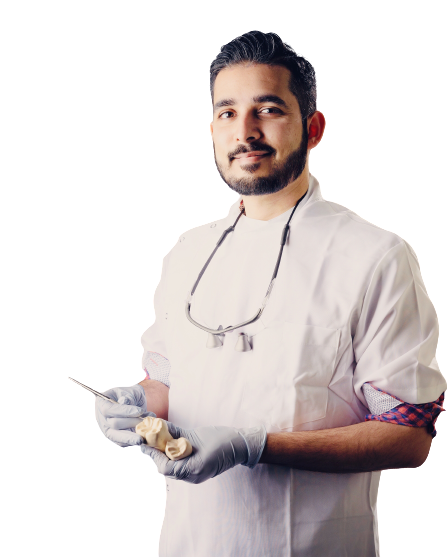Priority places for rural students in medicine and dentistry degrees
If you have lived in a regional or remote area for at least five years, you may be eligible for a priority place in dentistry or medicine at Griffith. These priority places are set aside to help support and develop the next generation of dentists and doctors familiar with the unique challenges facing rural communities.
Students may also have the option of undertaking placements in a rural setting in South East Queensland and the Burnett regions, including Toowoomba, Stanthorpe, Warwick, Dalby and Palm Island.
Sustainable Development Goals
Griffith University is aligned with the United Nation’s Sustainable Development Goals (SDGs) and is committed to tackling global challenges around poverty and reducing inequalities, striving for a more equitable and prosperous world for all.

What can I study?
At Griffith, we recognise the vital role healthcare providers play in rural and remote communities and understand the unique challenges that students from rural backgrounds face when considering university. Through the Griffith University's Rural Priority Access Scheme (GURPAS), Commonwealth Supported Places are set aside for rural students in the following degrees:
Please note you will need to meet the admission requirements for your selected degree.
- Bachelor of Dental Health Science—applications close 30 September 2024 for Trimester 1, 2025 admission.
- Doctor of Medicine—applications close 31 May 2024, 5pm (AEST) for Trimester 1, 2025 admission.

Am I eligible?
To be eligible, you must have lived in an Australian rural area for at least five consecutive years, or for 10 years cumulatively, since birth. This area needs to be defined using the 2019 Modified Monash Model (MM) as:
- MM 2 Regional centres
- MM 3 Large rural towns
- MM 4 Medium rural towns
- MM 5 Small rural towns
- MM 6 Remote communities
- MM 7 Very remote communities.
You can check your MM status using the Health Workforce Locator and selecting the Modified Monash Model (2019) filter.
Please note, if you attended boarding school you can use your family’s residential address to qualify.
How to apply
Bachelor of Dental Health Science
If you would like to start study in 2025 and have applied to sit/sat UCAT ANZ and confirmed your rural eligibility (see 'Am I eligible?' above), you will also need to:
- Apply via QTAC. Applications for 2025 admission open in early August 2024.
- Start collecting your proof of rural eligibility documents, such as:
- Supporting letters from a GP, school, university or workplace (signed originals on letterhead). Supporting letters must state your rural address.
- Invoices for telephone, rates, utilities or bank statements showing your (or your family’s) address. These documents can be in your parents name(s).
- Letters written in support of your claim must be original. Other documentation can be photocopies. If selecting five years consecutive residence, the supporting documentation must support five full years and must be consecutive.
- Look out for your email from QTAC that indicates you may be eligible for Griffith's Rural Priority Access Scheme.
- Complete the cover sheet you are directed to, in the email from QTAC.
- Upload the cover sheet with your supporting documents to QTAC by 30 September 2024.
Further information on the documentation requirements and how provide them to QTAC as part of your application can be found here.
View the full admission requirements and program information in the Degree Finder.
Doctor of Medicine applicants
Applications to the Doctor of Medicine are made through GEMSAS. When completing your application, you will be asked if you think you are a rural applicant. Respond yes and follow the prompts to provide proof of residence.
View the full admission requirements and program information in the Degree Finder.
Mohit Tolani
Dental Health Science graduate
Mohit was drawn to rural dentistry as he saw the diversity of opportunities offered to health professionals in those areas. This has led him to develop several unique dental outreach programs in rural and regional Victoria and New South Wales, while also allowing him to expand his understanding of not just dentistry but also public health and education.
While working as a Dental Officer in Goulburn Valley Health in rural Victoria, Mohit realised he didn’t just want to be a dentist who pulled teeth; he wanted to do more to improve dental health by educating his patients. In 2017, while working in Shepparton in rural Victoria, he organised the Shepp Health project, delivering basic dental, eye and general health management information to high school students and TAFE students in order to increase health awareness, identify anomalies, and give them knowledge of where and when to seek help.
Then, in 2018, he etched the Community Smiles program in Dapto in regional New South Wales, providing free dental care to marginalised communities and those with limited access to oral health care, and oral health literacy to school children and young adults. He has taken this further as a visiting flying dental officer with the Royal Flying Doctor Service Southern Eastern (RFDS SE) section providing dental care and education to rural and marginalised communities. Mohit says the basis of both programs is changing the future through education.

Frequently asked questions
How do I find out whether my home address is in a MM 2-7 area?
Go to the Health Workforce Locator, type in your residential address, select 'Modified Monash Model'. In 'Select a year' use 2019, and you will be advised of your MM Remoteness Area category.
I was born in Coober Pedy and this remains my home address. However, I have been attending boarding school in Brisbane for the past 6 years. Do I qualify to be considered under GURPAS?
Yes, if you reside at Coober Pedy with your parents when you are not at school, you can apply to be considered under GURPAS.
Although I live in Brisbane our family has a holiday home in Alice Springs and we spend about six weeks a year there. Do I qualify to be considered under GURPAS?
No, your family’s holiday home is not your primary residence and you would not be eligible to apply under GURPAS.
My family and I moved to Goondiwindi three years ago and intend to stay there for at least the next five years. Can I apply under GURPAS knowing that I will meet the criteria in two years?
No, you cannot claim time in the future as part of the five or 10 years.
What if I currently am, or have been, studying an undergraduate degree in a city with a goal of applying for medicine?
Graduate entry students of rural origin who are, or have been, studying an undergraduate degree in a city will still be eligible for the Rural Priority Access Scheme, providing they have spent five years consecutively or 10 years collectively in a rural area.
What if I’m currently a secondary school student boarding in the city?
Students from rural backgrounds who are boarding at a secondary school located in a city, can apply for entry to the medicine program, providing they have spent five years consecutively or 10 years collectively, in a rural area.
Will I get to do rural placements while undertaking my medical degree if I enter as a part of the GURPAS Scheme?
Some students admitted to the MD at Griffith will be allocated to spend a year at a rural placement. The aim is for at least 25% of students to have spent a year or more in rural placements by the time they graduate.
When nominating placement preferences, students have the option of ranking the five different placement zones in preferred order. While preferences are taken into account, not all students will get their most preferred placement as quota limits apply.
If I apply for entry via GURPAS, does it mean I will automatically get a Bonded Medical Program (BMP) place?
No, Bonded places and unencumbered CSP places are distributed across all rural and non-rural applicants.
Do I have to work in a rural area when I graduate from Medicine if I get a place under GURPAS?
There is no requirement to work in a rural area once you graduate from medicine unless you have been admitted to a BMP place.